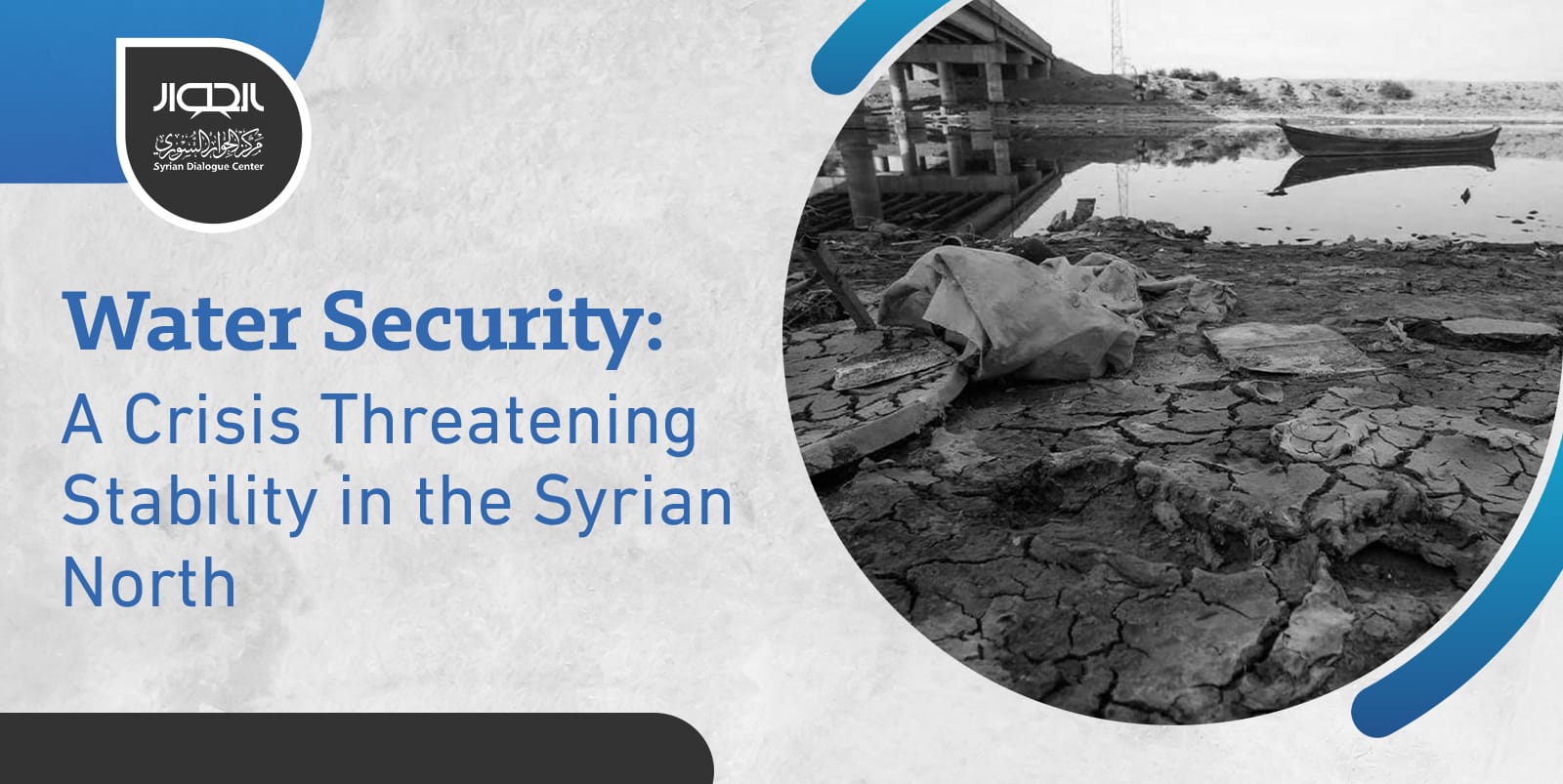
Water Security: A Crisis Threatening Stability in the Syrian North
Analytical report produced by the societal unit
Abstract:
Water security is defined as “The capacity of a population to safeguard sustainable access to adequate quantities of acceptable quality water for sustaining livelihoods, human well-being, and socio-economic development, for ensuring protection against water-borne pollution and water-related disasters, and for preserving ecosystems in a climate of peace and political stability”. Indeed, water is one of primal requirements when talking about restabilising communities and their recovery; due its relation to sustaining basic living standards as well as the fields of agriculture and industry.
The water crisis in Syria has predated 2011, as Syria was classified among the countries that suffer from water scarcity. Not to mention the increase in water wastage and pollution due to problems in the struggling sewage system, leading to polluting the water and harming various plant and animal species.
There are several indicators showing serious issues threatening water security in Syria in general, but particularly in the Syrian North in areas out of the regime’s control. That was mainly due to Assad’s regime using water as a weapon, targeting the infrastructure supporting it. One of these main indicators is the increased urgency of migration and forced displacement; as the population density has increased by 272% in the region of Idlib and 324% in Aleppo’s countryside, coming with a systematic targeting of infrastructure and the scarcity of natural resources.
The process of digging up wells has also intensified; this is done in a very unorganised and undisciplined way due to the increasing need for water with the growing population. This led to the depleting the first layer of subsurface water, and the lowering of water levels in wells forcing the renewed digging of wells to deeper levels and thus an increase in the cost of water extraction.
Furthermore, the destruction of sewage infrastructure or its nonexistence as well as the scarcity of water processing facilities increased the pollution of water bodies or reservoirs as well as the general habitat. As we mentioned earlier the unorganised digging of wells in camps based on incorrect specifications has also led to higher chances of polluting drinking water with sewage water, not to mention unprocessed sewage water being used in agriculture in some cases.
The water security in the region has also been greatly affected by the drought wave hitting the region in the last 2 years. Particularly the unavailability of drinking water in Aleppo’s northern countryside, where several wells providing for several communities have dried up. The scarcity of water is at a level below basic sustainability of an individual’s health and dignity, combined with an increase in the price of water tanks because of increases in the price of fuel and increasing demand.
The drought has also greatly affected the agricultural sector as the delay of the rain season coupled with its irregularity with regards to the amount distribution and duration of precipitation greatly damaged the yield of rainfed and irrigated crops. It also was a factor in lower crop quality as these unexpected environmental factors occurred during the fruition phase.
In particular, the drought clearly affected the yield of wheat and barley, as the yield of this year did not go over half of last year’s along with a decrease in suitable agricultural land resulting in higher prices for such land.
With regards to livestock, the drought also affected the natural pastures that were already scarce due to irregular rainfall. The increase in temperature over the average has also resulted in these animals not attaining their required food or water, resulting in weakness and disease spreading among the livestock, especially given that most ranchers couldn’t provide water for their livestock due to the increased price of it.
In response to the crisis, makeshift solutions and water processing were implemented, however these solutions only exacerbated the problems. As these makeshift solutions are no longer viable, what is needed are projects following a strategic plan to manage water resources and limit waste, and a deep look into new solutions to utilise the limited resources to meet the increasing demand in the best way possible. All to ensure stability and supporting the economy, preventing the water crisis from erupting into a new conflict or resulting in new waves of migration and displacement.
The report presents some recommendations focusing on the necessity of the existence of an environmental and water security organisation, this organisation studies the reality of the region in a periodic manner. And based on that it recommends solutions and sustainable projects, working on improving the sewage and processing systems, as well as implementing projects that aim to limit wasteful use of water especially in agriculture.
To read the full research paper (Arabic)
مؤسسة بحثية سورية تسعى إلى الإسهام في بناء الرؤى والمعارف بما يساعد السوريين على إنضاج حلول عملية لمواجهة التحديات الوطنية المشتركة وتحقيق التنمية المستدامة





